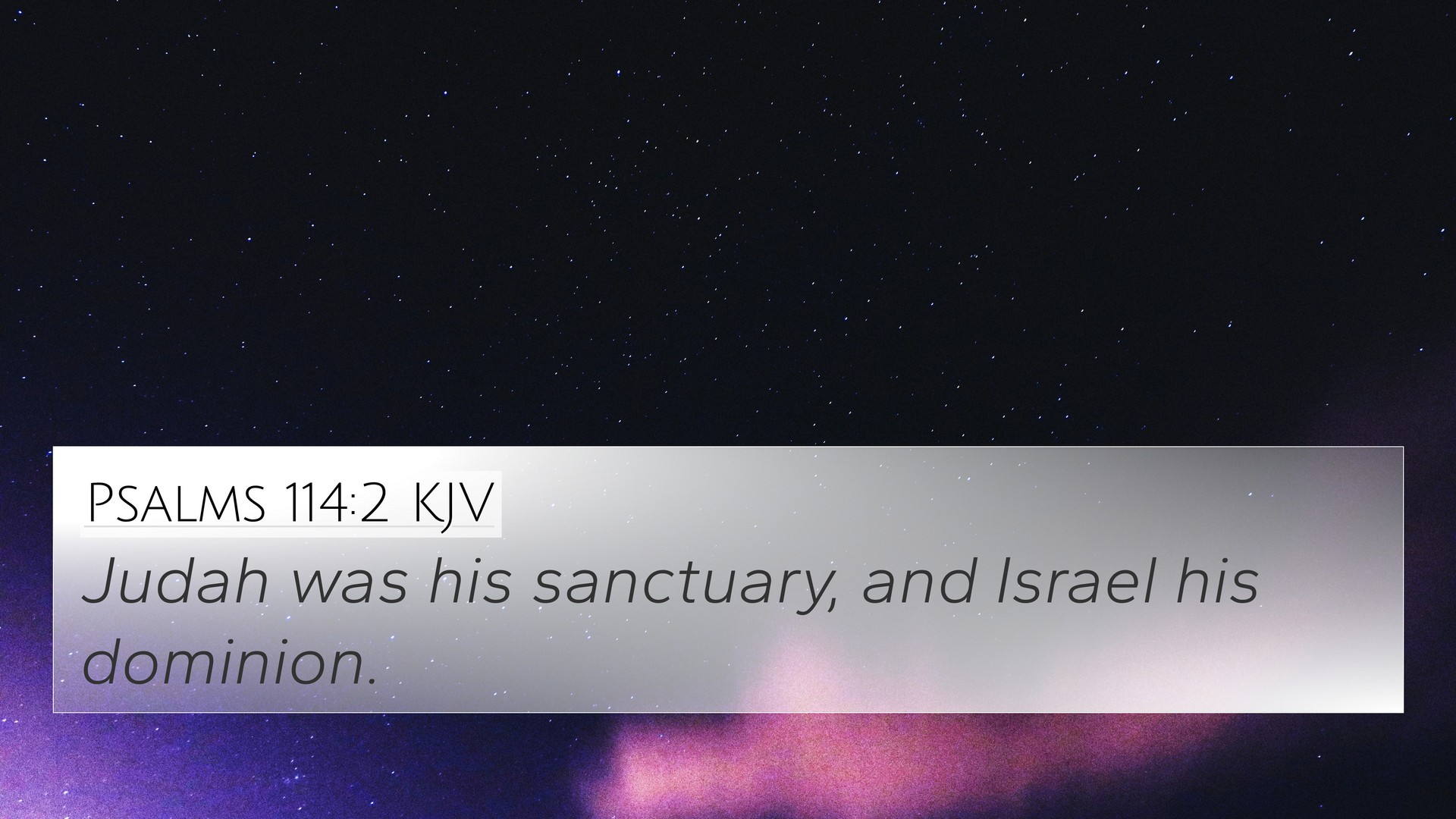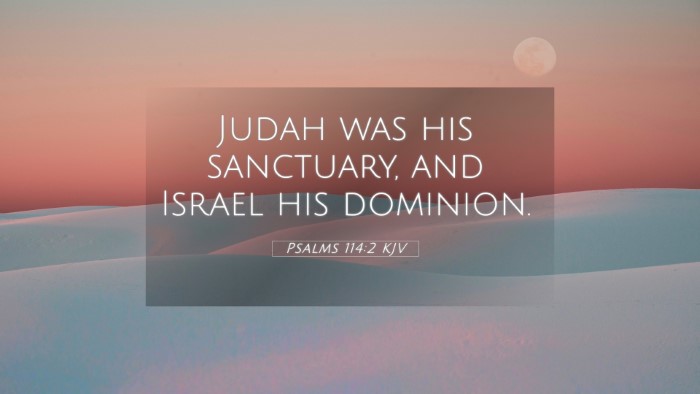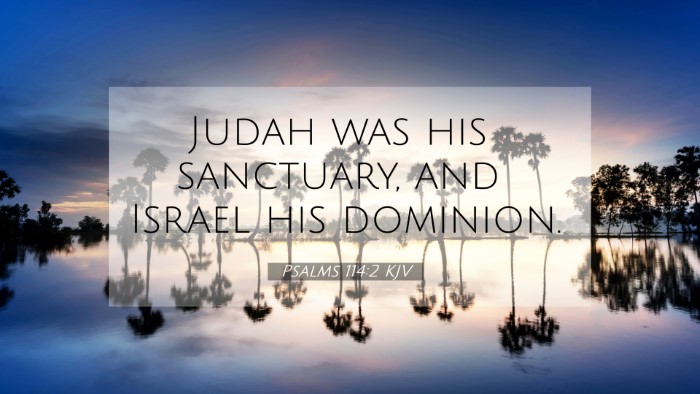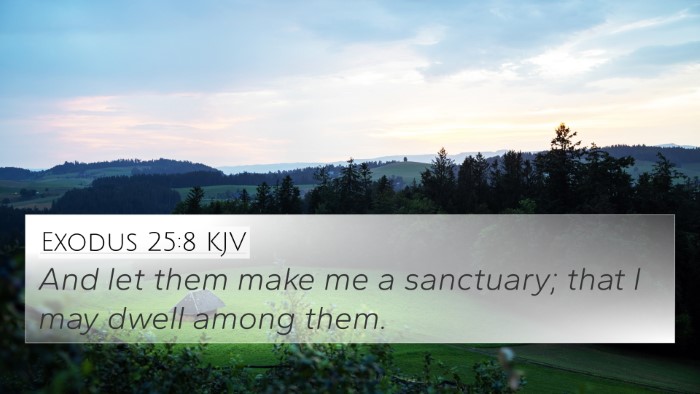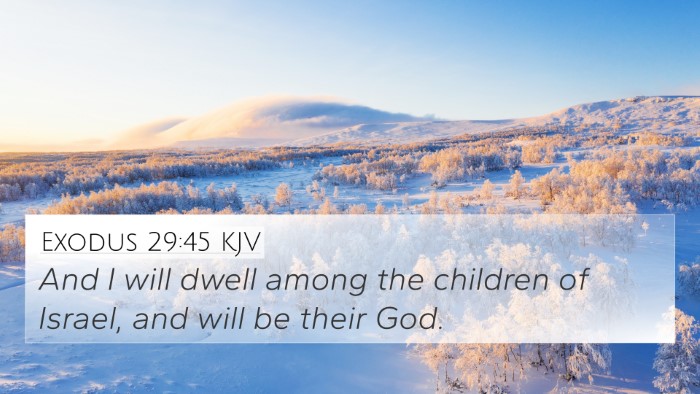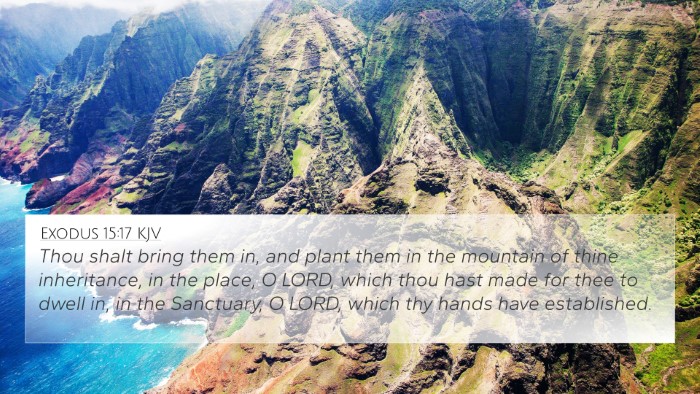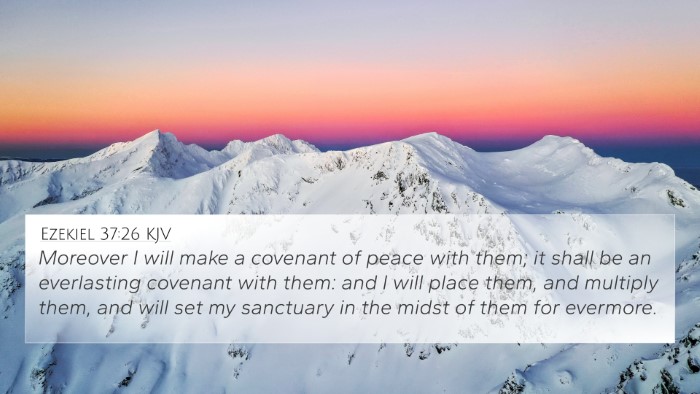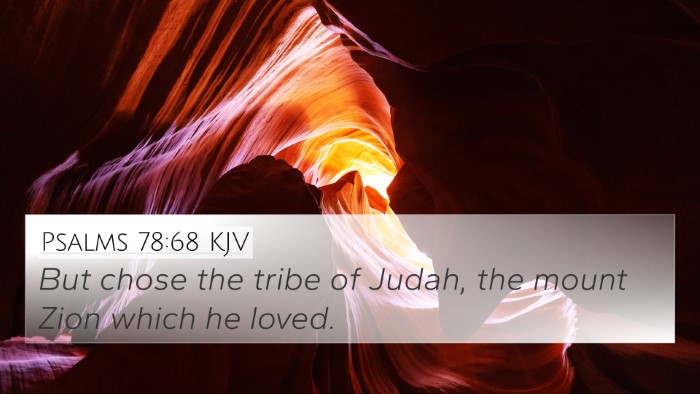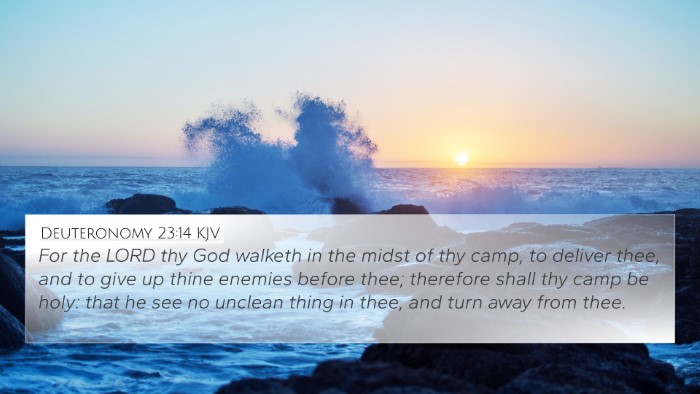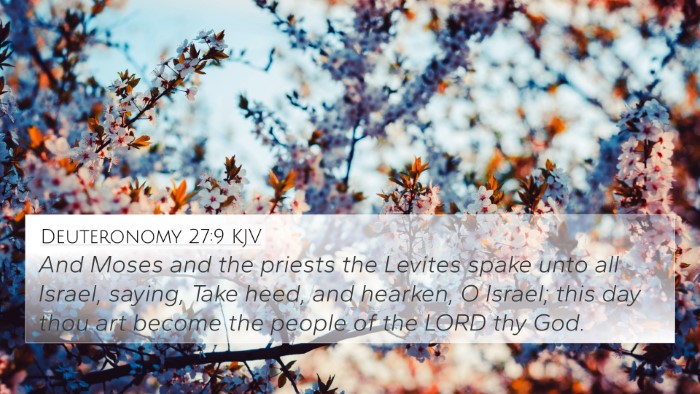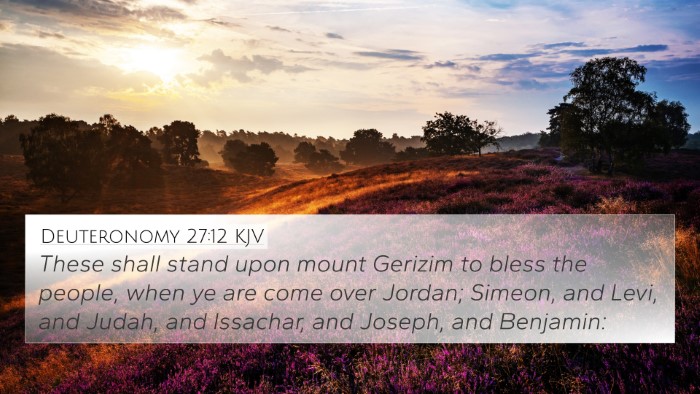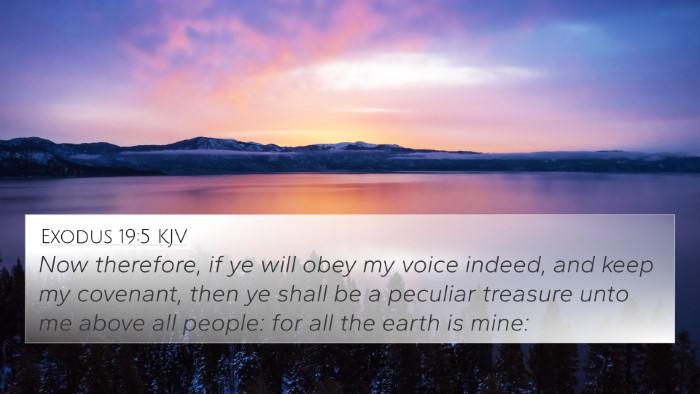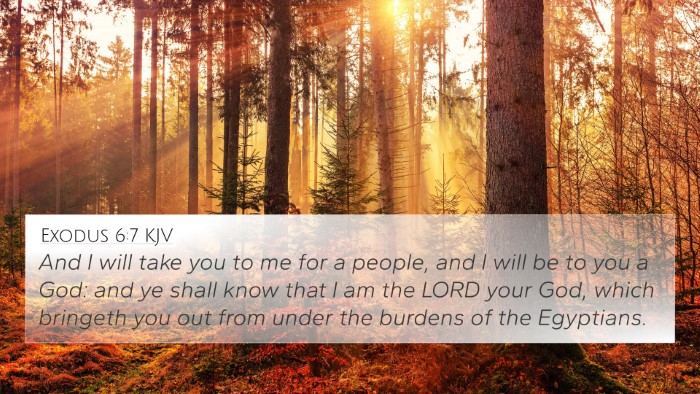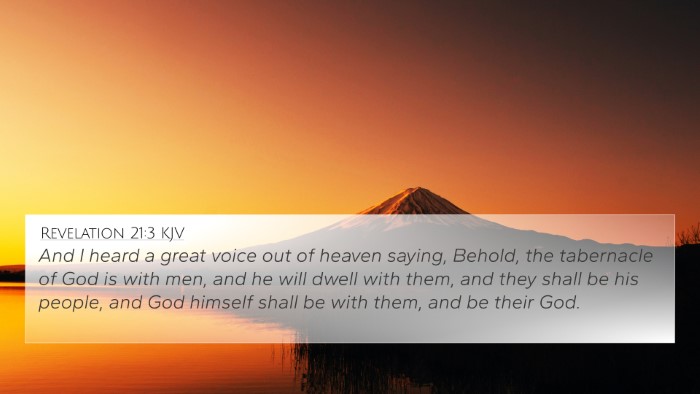Understanding Psalms 114:2
Psalms 114:2 states: "Judah was His sanctuary, and Israel His dominion." This verse encapsulates a powerful message about God's relationship with His people and the significance of Judah and Israel in the divine plan.
Verse Analysis
This verse highlights the special status of Judah and Israel in God's eyes. The terms "sanctuary" and "dominion" suggest both a physical and spiritual territory that is set apart for God’s presence and rule.
Commentary Insights
Matthew Henry's Commentary
Matthew Henry notes that this verse signifies the election and privilege of the tribes of Israel, particularly Judah. He emphasizes that God's choosing of Judah as His sanctuary illustrates His holiness and the sacredness of His dwelling among His people. Henry also points out that Israel represents the entire nation, indicating that God's sovereignty extends over all His people.
Albert Barnes' Commentary
Albert Barnes highlights the notion that God’s choice of Judah and Israel implies a relational aspect, where God desires to dwell among His people. He asserts that this verse marks a distinction between nations, revealing that God has a unique attachment to Israel, which further establishes Israel's identity as God's people and His realm.
Adam Clarke's Commentary
Adam Clarke elaborates that the sanctuary of Judah refers specifically to the temple in Jerusalem, where God’s presence was uniquely manifest. He explains that this verse also has eschatological implications, suggesting that the restoration of Israel signifies a divine order under God’s rule.
Bible Cross References
To enhance understanding of Psalms 114:2, here are several cross-references that illustrate its thematic connections within the Scriptures:
- Exodus 15:17 - "...You will bring them in and plant them in the mountain of Your possession..." highlights the idea of God establishing His people in a sacred space.
- Isaiah 60:14 - "...And they shall call you the City of the Lord, Zion of the Holy One of Israel," reinforces the sanctity of Jerusalem and its people.
- Psalms 78:68-69 - "But chose the tribe of Judah, Mount Zion which He loved," linking Judah's special status to God's love and choice.
- Jeremiah 3:14 - "...for I am married to you," depicts God's covenantal relationship with Israel, emphasizing His commitment.
- Micah 4:7 - "And I will make the lame a remnant, and those who were cast off a strong nation," showing God's redemptive plan for His people.
- Hebrews 8:1-2 - "We have such a high priest, who is seated at the right hand of the throne of the Majesty in heaven..." connects New Testament themes of Christ's priesthood to the sanctuary concept.
- Romans 9:4 - "They are Israelites, and to them belong the adoption, the glory, the covenants..." emphasizes the historical significance of Israel in God’s plan.
Thematic Connections
This verse not only holds significance in the Old Testament context but also serves as a bridge to New Testament teachings. Here’s how:
- God’s Presence: The notion of God dwelling with His people is echoed in John 1:14, where "the Word became flesh and dwelt among us".
- Spiritual Dominion: Revelation 5:10 presents believers as a kingdom and priests, drawing from the roots established in Psalms 114.
- Judah as a Symbol: In Revelation 7:5, the tribe of Judah is mentioned, indicating its lasting spiritual significance.
Conclusion
Psalms 114:2 encapsulates profound truths about God’s relationship with His chosen people, highlighting Judah’s role as a sanctuary and Israel as His dominion. Through cross-referencing with other biblical texts, we can observe the continuity and depth of God's covenantal love and sovereignty, making this verse a pivotal point in understanding the broader narrative of Scripture.
Further Study
For those interested in deeper exploration, consider utilizing tools for Bible cross-referencing or a Bible concordance to uncover more about these connections:
- Utilize cross-reference Bible study methods to identify similar themes and motifs.
- Engage in comparative Bible verse analysis of Psalms and other Scripture to enrich your understanding.
- Explore Bible reference resources to delve deeper into the thematic elements of chosen texts.
